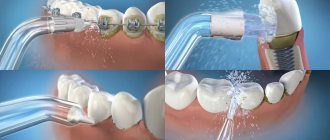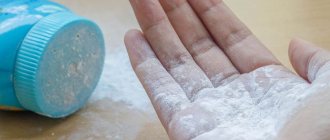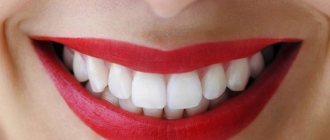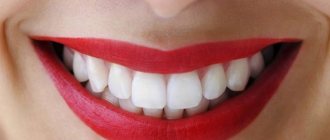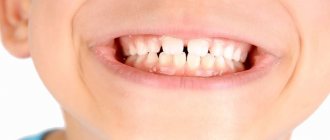From this article you will learn:
- How water works in the human body
- Clinical causes of constant thirst
- Why do you want to drink during pregnancy?
- Consequences of excessive water intake
- Proper drinking regimen to get rid of constant thirst
- What water is better to drink
Constant thirst can bring real discomfort, because this symptom increases dryness in the mouth and on the mucous membranes of the lips. In addition, a person’s daily urine volume increases, which is accompanied by frequent urge to go to the toilet.
To stop this endless circle, you need to understand the reasons for the constant desire to drink. It could be about food, bad habits, or it could go much deeper. Let's determine why you want to drink and what needs to be done to normalize the water balance.
How water works in the human body
Water is the basis of life. A person cannot exist without it. A child's body consists of 85% liquid. Over the years, the amount of water gradually decreases, reaching its minimum in old age.
With the participation of fluid, various processes occur in the body: biochemical reactions, digestion, thermoregulation, and more. A person loses water during breathing, through the skin through sweat, as a result of the production of substances in the gastrointestinal tract. Loss of fluid during sleep explains why you are thirsty in the morning.
The liquid takes part in cleansing the body of harmful components that come from food. The kidneys pass blood through themselves, filtering out toxic substances, and excrete them along with urine. All situations associated with loss of fluid explain why the throat becomes dry and thirsty.
Every day a person needs to replenish the lack of fluid in the body. This need is best satisfied by drinking clean water. The body also receives fluid through food. But sometimes this regime is not enough, and even drinking water cannot completely satisfy your thirst. If this happens often, you need to find out why you feel thirsty after drinking water.
This condition can be associated with serious disorders in the body and requires medical intervention. During severe dehydration, which must be quickly compensated, saline solution is administered intravenously.
How water works in the human body
In the human body, fluid is present in two forms: intracellular and extracellular. The first is located in the cell and is separated from its surrounding environment by a membrane. Extracellular fluid is found in the intercellular space, as well as in blood and lymphatic vessels.
For human health, it is important not only to have a sufficient amount of water in the body, but also its harmonious distribution between organs and tissues. How vital systems will function depends on this. If the balance is disturbed, then this is one of the explanations why your mouth becomes dry and thirsty.
Clinical causes of constant thirst
The norms for fluid consumption adopted by different authorities in medicine differ somewhat. In Russia it is believed that you should consume about 30-40 ml per kilogram of weight. During the summer heat it is much more. But rarely does anyone drink such an amount, and water is constantly consumed throughout the day. This explains why you feel thirsty in the evening. In publications you can find a water consumption rate of 1.2-1.5 liters per day. The American Institute of Medicine recommends that men drink 3.7 liters of water per day (20-25% of which comes from food and drinks other than pure water), and women - one liter less.
Three studies that will help stop aging
Such a simple element as water has always been considered vital and necessary.
But at the same time, the number of myths about water, scientific facts and opinions that are imposed every day and then refuted, encourages us to look for answers to our questions. To help you, my team and I have prepared a webinar and a gift: 3 unique materials based on the experience of our experts on prolonging youth with the help of water. After completing our free webinar you will learn:
Artyom Khachatryan
practicing physician-nutritionist, naturopath
Immediately after registration you will receive a selection of studies:
Aging: you can't stop it, you can't accept it
What conclusions did 21st century scientists come to when studying water and its ability to prolong youth?
In fact, we don't know anything about water.
Important information for prolonging youth that we could have been told back in school
Hydrogen water is the most powerful natural remedy for prolonging youth
Why hydrogen-enriched water is considered the most effective, safe and affordable way to prolong youth
Find out how water can take care of your health, youth and beauty at a free webinar by nutritionist Artyom Khachatryan!
WHO has adopted other standards for water consumption per day:
- men – 2.9 l;
- women – 2.2 l.
This is interesting!
“Is it possible to drink water after eating: let’s understand the rules of use” Read more
In fact, everything is very individual. Each person has their own fluid needs.
Why do you want to drink and how can you find out that you need to replenish the lack of fluid? The drinking center in the nervous system, which consists of the nuclei of the posterior lobe of the hypothalamus, the limbic sections of the cerebral hemispheres and some areas of their cortex, is responsible for the thirst signal. If thirst is constantly present, this indicates a malfunction in the functioning of this center.
The drinking center controls the water content in all body systems, osmotic pressure, and Na+ levels in the liquid. It is he who determines the reasons why you want to drink more. Monitoring is carried out by the hypothalamus. Responses occur reflexively, and hormones of the renin-angiotensin-aldosterone system are involved: vasopressin (produced by the hypothalamus), angiotensin (formed in the blood), renin (secreted by the kidneys), aldosterone (secreted by the adrenal cortex). Thyroid and pancreatic hormones are also necessary to regulate fluid levels in the body.
Why do you often want to drink water? Drinking water in itself is not a disease. Doctors pay attention to excessive thirst, which may be a symptom of pathology.
Clinical causes of constant thirst
Most often, the reasons why the mouth is dry and thirsty are such painful conditions as:
- chronic diarrhea;
- constant vomiting;
- increased body temperature;
- brain injuries;
- infection;
- internal or external bleeding, capillary loss syndrome;
- diabetes mellitus (hyperglycemia);
- diabetes insipidus (not related to insulin) of neurogenic, nephrogenic or dipsogenic origin.
How to Guaranteed Lose Weight with Water: 3 Simple Habits
There are almost no women in the world who have never been on a diet. Sooner or later, everyone faces the desire to lose a couple of kilograms.
In order for the treasured number to appear on the scales sooner, introduce 3 healthy and super simple habits into your life: we have prepared a document with experts where we describe them in detail.
Artyom Khachatryan
Practitioner, nutritionist, naturopath
75% of our course participants who follow these habits have significantly reduced their weight!
You can download the document for free:
Frequent urination and a condition that makes a person thirsty can be caused by:
- various lesions of the hypothalamus (for example, a tumor), which disrupts the formation of the antidiuretic hormone vasopressin, which is responsible for water-electrolyte metabolism;
- a decrease in osmolality in the blood plasma (the amount of anions, cations and non-electrolytes);
- low sensitivity (or lack thereof) of renal tubular receptors to vasopressin.
The following conditions may also indicate why you are always thirsty:
- chronic renal failure (nephropathy, pyelonephritis, amyloidosis, etc.);
- thyrotoxicosis (hyperparathyroidism);
- primary hyperaldosteronism or Conn's syndrome (caused by hyperplasia of the adrenal cortex and increased production of aldosterone, causes a deficiency of potassium ions - hypokalemia);
- hypohydration with edema;
- hyperhidrosis (excessive sweating);
- hypercalcemia;
- hyponatremia;
- hypercortisolism syndrome (Itsenko-Cushing syndrome);
- adrenal adenoma and adrenocortical cancer.
Clinical reasons for constant thirst
The answer to the question of why you constantly want to drink water may be hidden in such congenital pathologies as acromegaly (appears due to a malfunction of the anterior pituitary gland), aceruloplasminemia, Bartter's syndrome (impaired absorption of chlorides and sodium by the kidneys), cystinosis, Parhon syndrome, Fanconi syndrome, sickle cell anemia. Only a doctor can tell you why your lips are dry and thirsty.
This is interesting!
“Drink water before, during or after meals” Read more
Taking a course of treatment with certain medications, such as diuretics, antibiotics, antipsychotic drugs, explains why you are constantly thirsty and have a dry mouth.
general information
To maintain physiological water balance, a person needs to drink about 1.5-2 liters of fluid per day.
The occasional urge to take a few sips of water is completely normal. When thirst arises due to pathological reasons, there is a constant irresistible desire to drink huge quantities of water - several glasses at a time. Polydipsia is accompanied by a feeling of dry mouth; patients report that saliva becomes viscous and is secreted in much smaller quantities. Due to decreased saliva production, a person experiences difficulty speaking and eating, and the tongue may feel like it is “sticking to the roof of the mouth.” A characteristic feature of pathological thirst is that the desire to drink does not disappear even after drinking large volumes of water; in severe cases, people drink up to 10-12 liters of liquid per day, but the dryness of the oral mucosa remains. This condition is often combined with frequent excessive urination. If you have thirst that is not associated with a hot climate or eating salty foods, you should consult a specialist to identify the cause of the disorder.
Why do you want to drink during pregnancy?
During pregnancy, women are advised to increase their daily water intake by 300 ml. At the same time, you should not drink more than two liters per day, as this increases the load on the kidneys. Why do pregnant women want to drink?
In the third trimester of pregnancy, there is often an increased production of the protein angiotensinogen in the liver and its release into the blood, which is the reason why a woman is always thirsty. The feeling of thirst is also affected by the production of corticosteroids and estrogen, and changes in the composition of minerals.
When a child grows and develops in the womb, a woman’s glomerular filtration rate of the kidneys accelerates, which experience increased load. The hormone angiotensin plays an important role in this. It is its action that explains why your mouth becomes dry and thirsty.
An increase in the production of the hormone angiotensin during the gestational period stimulates the synthesis of aldosterone, which is produced in the adrenal cortex. As a result of these biochemical processes, a large number of sodium ions are retained in the blood, and potassium ions are excreted. It is the influence of these substances that explains why your throat dries out and you feel thirsty.
Why do you want to drink during pregnancy?
Only a doctor can determine why you are always thirsty. After a detailed interview with the patient and tests, the specialist will make the correct diagnosis. All the nuances of the body’s condition are taken into account - the number of trips to the toilet, diet, and more.
A person must undergo tests to determine why he wants to drink water and has dry mouth:
- blood test to determine plasma glucose (including on an empty stomach);
- blood test for the amount of potassium, calcium and sodium (osmotic concentration);
- blood chemistry;
- general urine analysis;
- urine analysis for relative density.
Depending on the research results, you may need to visit an endocrinologist, hematologist, nephrologist, who will tell you why you really want to drink water. You may need to do a CT or MRI of the brain, kidneys, and adrenal glands.
Treatment
Help before diagnosis
The desire to drink large quantities of water goes away on its own only if it is caused by a natural cause. On hot days, you should always carry a bottle of water with you to prevent dehydration, which leads to dry mucous membranes. It is undesirable to overuse salty foods and smoked foods, especially at night, as this causes severe thirst and difficulty falling asleep. If polydipsia occurs for a long time or a person drinks 5-7 liters of water per day, this serves as a basis for seeking medical help.
Conservative therapy
The drug treatment regimen depends on the cause of thirst. First of all, etiotropic therapy drugs are used that eliminate or reduce the manifestations of the underlying disease. For diabetes mellitus of any etiology, a diet must be prescribed, which involves limiting fast carbohydrates, animal fats and monitoring the amount of calories consumed. For the treatment of diseases manifested by polydipsia, the following are used:
- Antihyperglycemic agents
. When diagnosing type 2 diabetes mellitus, tablet medications are prescribed that reduce tissue insulin resistance and lower blood glucose levels. At the same time, severe thirst and dry mouth disappear, urination and appetite are normalized. - Insulins
. Treatment of polydipsia caused by insulin-dependent diabetes mellitus involves the injection of insulins of varying durations of action. Treatment regimens are selected individually based on the degree of dysfunction of secretory function and the lifestyle of the sick person. - Hormone biosynthesis inhibitors
. Specific medications can inhibit the production of hormonal substances in the endocrine organs, which helps eliminate the symptoms of Itsenko-Cushing's disease and thyrotoxicosis. Medicines are prescribed according to strict indications. - Antipyretic drugs
. When body temperature rises to more than 38.5°C, which is accompanied by excruciating thirst, dry mouth and mucous membranes, and deterioration of general condition, it is recommended to take antipyretics from the NSAID group. The agents block the formation of pro-inflammatory mediators that affect the thermoregulation center. - Detoxification therapy
. Saline and colloidal solutions are administered by infusion for severe intoxication syndrome. The drugs enhance the elimination of toxins through the kidneys, normalize the rheological properties of blood, and increase the volume of blood volume during blood loss. - Neuroleptics
. If thirst is caused by psychogenic causes, it is necessary to prescribe psychotropic drugs. For schizophrenia and bipolar disorder, antipsychotics are used in combination with tranquilizers and antidepressants. Sedatives may be used.
Surgery
In case of heavy external bleeding, ligation of the affected vessel or vascular anastomosis is required. In case of internal bleeding into the abdominal cavity, a laparotomy is performed to detect and eliminate the source of blood loss. Surgical interventions are indicated for large hormonally active formations of the endocrine organs: in the case of diagnosing a pituitary tumor, transnasal removal is performed; for tumors of the adrenal cortex, adrenalectomy is performed. For lymphomas, surgical methods are combined with chemotherapy.
Consequences of excessive water intake
A person cannot take in more than one liter of fluid per hour. This is exactly how much the kidneys can pass through. Few people take this amount of water, but in some cases this happens.
If you drink more than 4-5 liters a day, the body expects the following consequences:
- excessive load on the kidneys;
- acceleration of protein breakdown;
- increased sweating;
- imbalance of minerals and salts;
- Reducing stomach acid and slowing down digestion.
This is interesting!
“What kind of water should you drink for health: rules and advice” Read more
Drinking a lot of water is dangerous for people who have chronic liver and kidney diseases. Excess fluid will put additional stress on the organs and damage them.
Proper drinking regimen to get rid of constant thirst
Don’t think that you will make up for the lack of water in your body by drinking any drinks or eating liquid food. Juices, fruit drinks, compotes, tea and coffee, as well as soups are not considered liquids. The human body regards them as food and expends energy on digesting them.
Why do you want to drink after eating? For the normal functioning of all organs and systems, clean water in optimal quantities is needed.
Proper drinking regimen to get rid of constant thirst
The main recommendations if you are concerned about why you want to drink in the evening:
- Drink a glass of water 30 minutes before meals.
- Use purified liquid, but not boiled.
- You should not drink water while eating.
- Increase fluid intake during exercise, in hot weather, during pregnancy and breastfeeding, and during poisoning or infection.
Nausea and frequent headaches
Nausea is often complained of simultaneously with recurring headaches. Such symptoms may indicate diseases of the nervous system. This could be: migraine, traumatic brain injury, meningitis, borreliosis. Also, nausea and headaches can be combined with diabetes and arterial hypertension.
